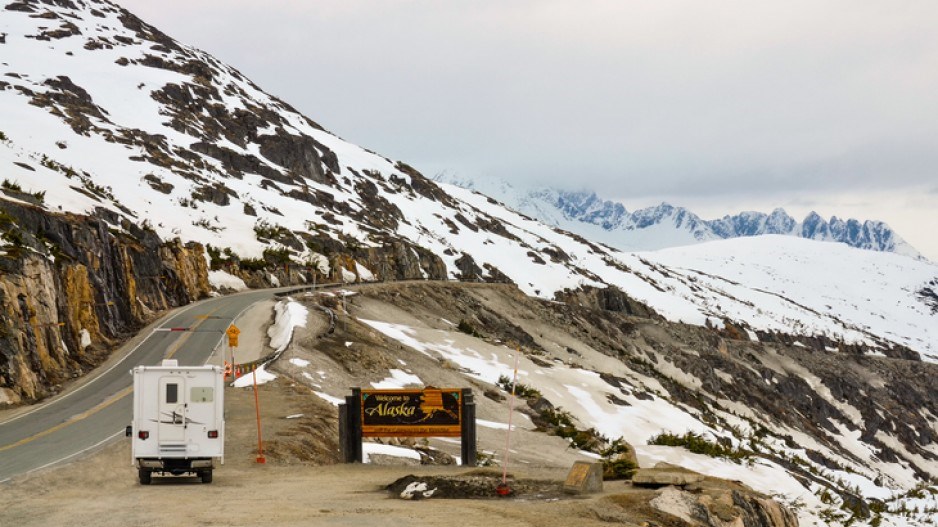Pandemic concerns about people entering Canada from the U.S. purportedly heading for Alaska have led Ottawa to place restrictions on such non-discretionary travel.
The restrictions are beyond those announced in March and now in place to Aug. 21.
Those entering Canada headed for Alaska must do so at border points at B.C.’s Abbotsford-Huntingdon, Kingsgate or Osoyoos crossings or at Saskatchewan’s North Portal and Alberta’s Coutts.
Travellers showing up at other border points will be refused entry.
No matter the travel reason, all foreign nationals who have COVID-19 or exhibit any signs or symptoms of COVID-19 will not be allowed to enter Canada.
“Travellers are encouraged to have documentation that will demonstrate their purpose of travel,” the Canada Border Service Agency (CBSA) said
Those travellers will be allowed “a reasonable period of stay to carry out the transit” and will be limited to the most direct route while avoiding all national parks, leisure sites and tourism activities.
They will also be required to report to a CBSA office prior to leaving Canada to confirm their exit.
For their stay in Canada, travellers will be issued a rear-view mirror tag.
The front will make clear that the travellers are transiting and include the date they must depart Canada. The back will remind travellers to comply with all conditions imposed upon entry and the Quarantine and Emergencies Acts and a list of public health and safety measures to follow.
While in Canada, travellers must: remain in the vehicle as much as possible, not make any unnecessary stops, practice physical distancing at all times, pay at the pump if they need gas, use a drive through if they need food, wear a suitable mask or face covering while in transit, ensure good hygiene practices if they need to use a rest area and avoid contact with others while in transit.
The same conditions apply to those entering from Alaska into Canada although designated entry points have not been set.
Failure to comply with the current border restrictions is an offence under the Quarantine Act and could lead to up to $750,000 in fines and/or imprisonment of up to 6 months.
If a traveller causes a risk of imminent death or serious bodily harm to another person while wilfully or recklessly contravening this act or the regulations, they could be liable for up to $1,000,000 in fines and/or three years in jail.
@Jhainswo




